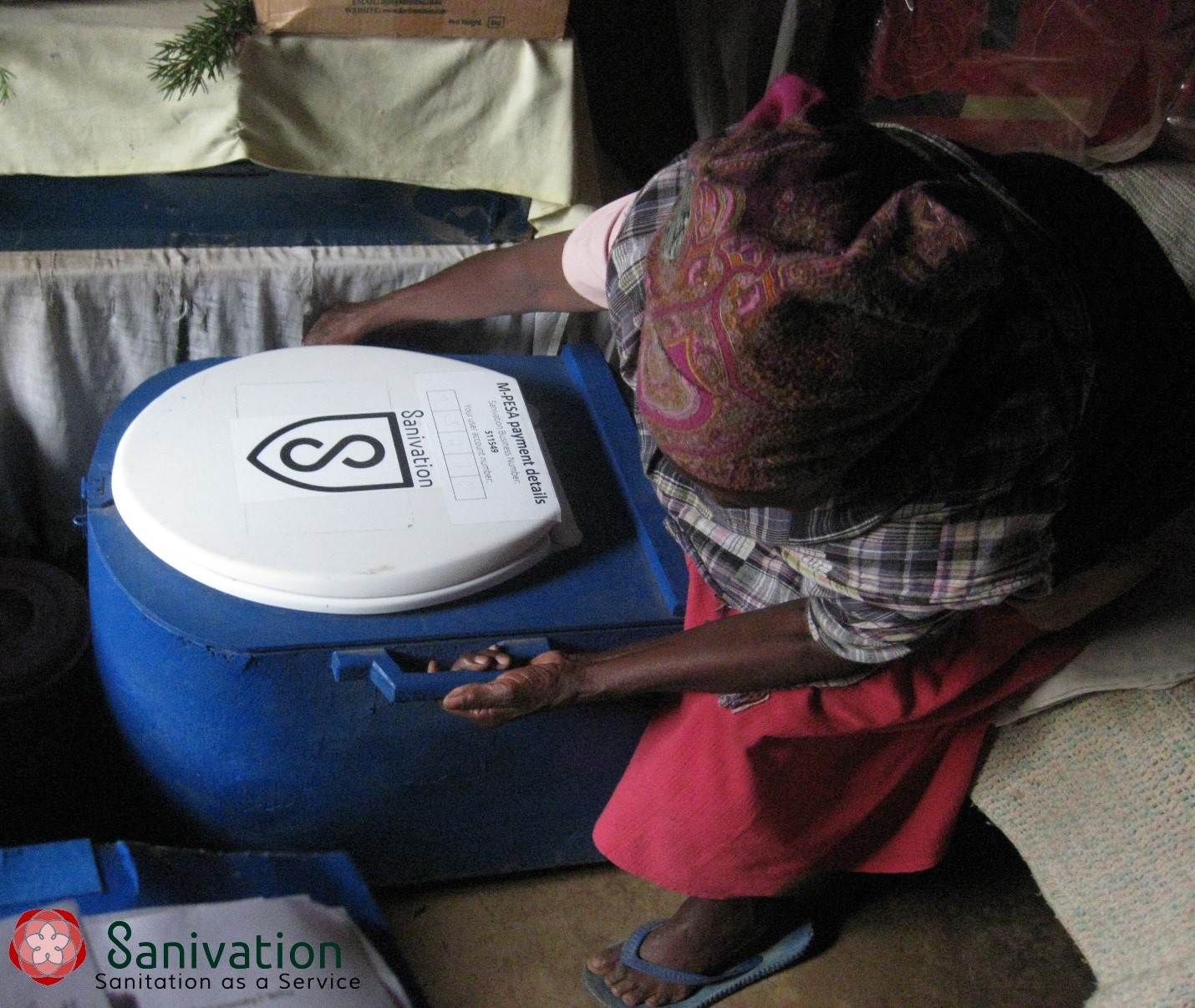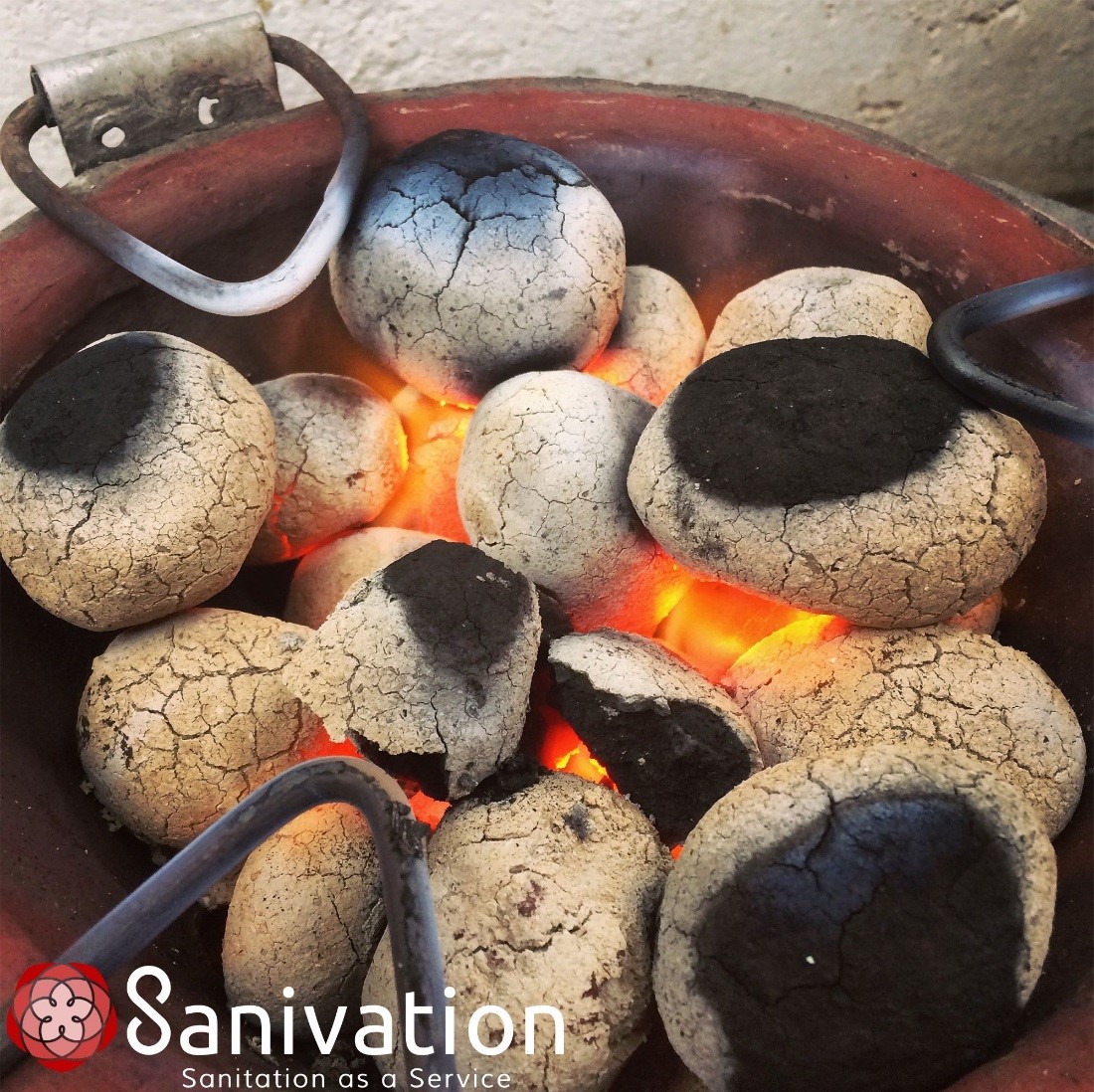Transforming Waste to Fuel and Creating Healthier Communities
This web page is archived for historical purposes and is no longer being updated.

Urine-diverting container-based toilets provided by Sanivation
Water, sanitation, and hygiene, commonly referred to as WASH, is essential to ensuring public health. Globally, 6 in 10 people (or 4.5 billion) lack safely managed sanitation. This puts people, especially children, at risk of diarrheal illnesses including cholera, dysentery, and typhoid fever. In Kenya, open defecation remains a major public health problem, with 95% of human fecal waste released untreated into the environment. In early 2017, the government of Kenya launched a step-up campaign to eliminate open defecation by 2020. To support this effort, CDC staff in Atlanta and Kenya are collaborating with a local nongovernmental organization, Sanivation, to improve WASH in Kenya one briquette at a time.
Briquette?

Briquettes created by sanitizing fecal waste
That’s right! Sanivation uses innovative, low-cost solar treatment technologies to transform fecal waste into briquettes that can be sold and used as a smell-free fuel source for cooking or heating. Another key component of Sanivation’s program is the provision of in-home, urine-diverting, container-based toilets. Recipients are charged a nominal subscription fee to have toilet service representatives come to their homes and empty the containers. High heat from concentrated sunlight renders the waste safe. It is then mixed with charcoal dust and pressed into perfectly formed briquettes.
This approach to managing waste is low cost and generates income, which makes the system sustainable. It works better, faster, and costs less than traditional wastewater treatment. Better management of fecal waste reduces the risk of diarrheal illnesses by decreasing exposure to fecal pathogens. The briquettes burn more cleanly than wood or charcoal, which can decrease indoor air pollution and risk of respiratory disease. Use of fecal waste for briquettes also reduces the demand for charcoal and wood for cooking and heating, helping to protect the environment.
Sanivation successfully piloted this approach in Naivasha, a city north of the capital Nairobi. Naivasha residents previously relied on pit latrines, leaking septic tanks, and open drains. Some paid to have their septic tanks emptied and the waste carried to the wastewater treatment plant. Unfortunately, the treatment plant consistently operated above its capacity and was unable to treat the waste properly to make it safe.
In the early days of the project, only a few households subscribed to receive the in-home toilets. As the numbers grew, Sanivation began treating nearly 1 metric ton (1,000 kilograms) of waste per month. They are now expanding from household-based sanitation to community-level sanitation, which will extend the benefits to those who cannot afford the subscription service. With demand for higher throughput in waste treatment, Sanivation developed a continuous flow heat-treatment system that can process 8,000 kg of waste per month and will eventually be able to treat 14,000 tons of waste per month — the equivalent tonnage of four African elephants!
CDC Kenya and CDC’s Waterborne Disease Prevention Branch are collaborating with Sanivation through a CDC Innovation Fund Award to help scale-up their waste collection and treatment activities beyond its household subscribers.
For World Toilet Day 2017 and beyond, CDC continues to look for innovative ideas and partners to improve sanitation and help communities live safer healthier lives.
To learn more please visit: